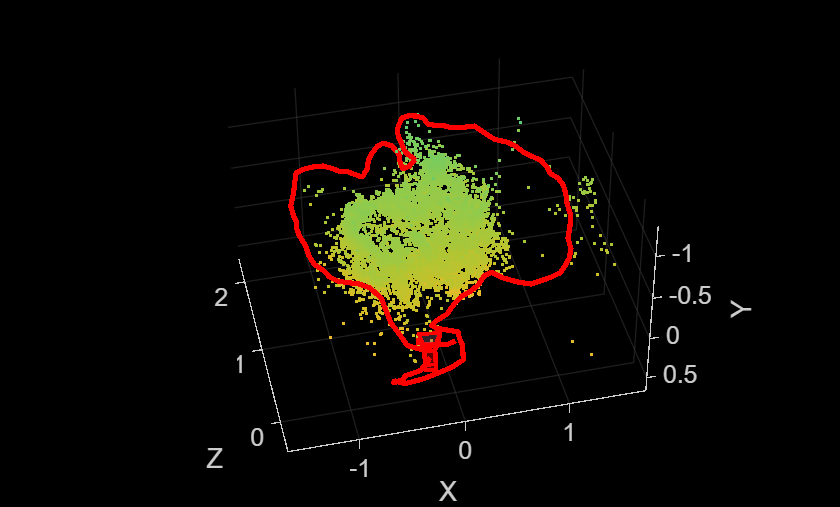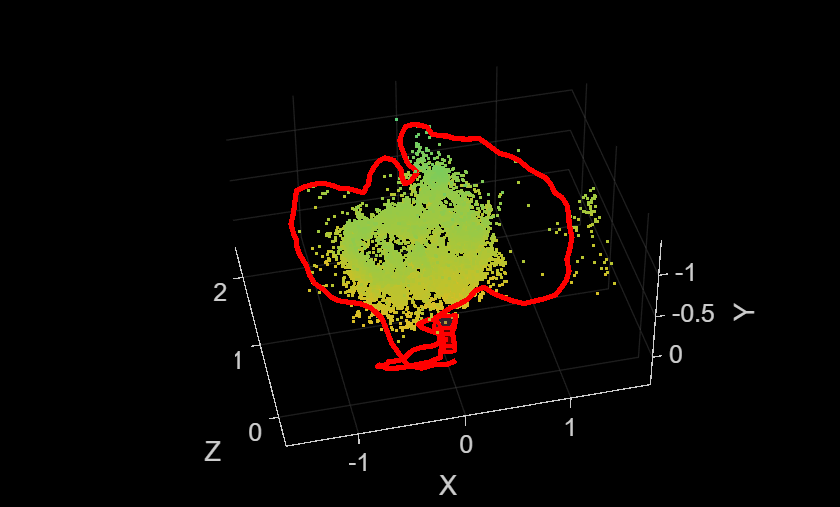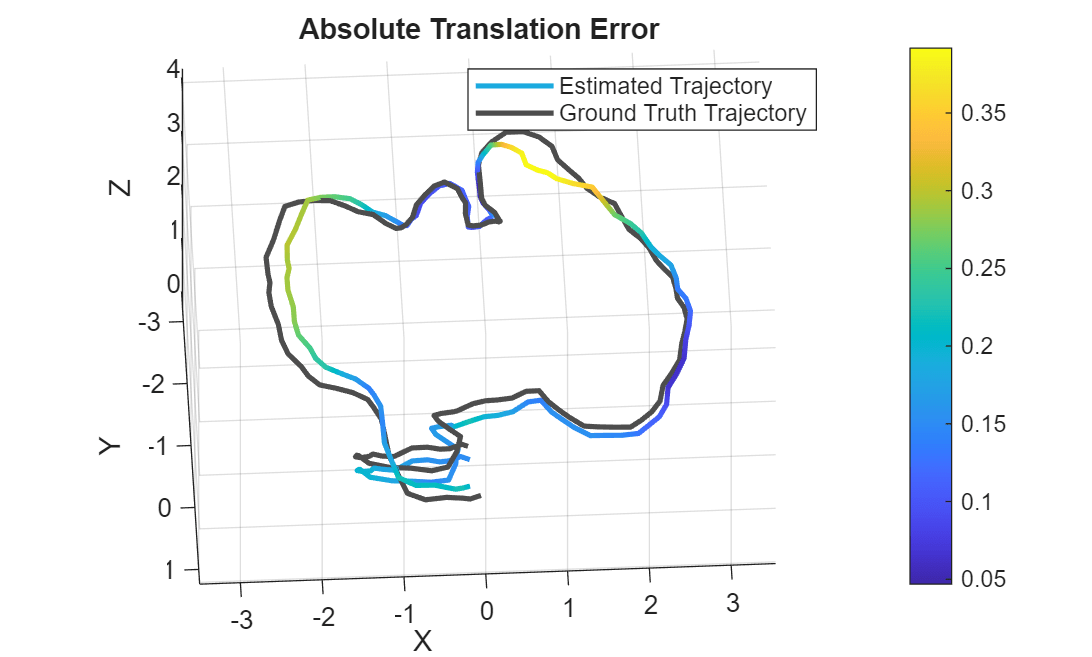plot
Description
plot( plots the 3-D map points and
estimated camera trajectory from the visual SLAM object vslam)vslam.
plot(
specifies options using one or more name-value arguments. For example,
vslam,Name=Value)MarkerSize=10 sets the diameter of the marker size to 10 points.
ax = plot(___)
Examples
Input Arguments
Name-Value Arguments
Output Arguments
Version History
Introduced in R2023b
See Also
Objects
Functions
checkStatus|isDone|addFrame|poses|mapPoints|reset|hasNewKeyFrame


